DACA & DAPA: I stand with my brothers and sisters who are undocumented today
BY CHRIS KERR | April 18, 2016
Today the U.S. Supreme Court is hearing oral arguments on President Obama’s deferred action initiatives, DAPA and expanded DACA
Across the country, people of faith are showing their support for the president’s action on immigration. Collectively, we know that protecting families from being torn apart by deportation is the right thing to do.
Over the past five years in my role at the Ignatian Solidarity Network, I have come to know many people in our Ignatian family who are marginalized by our immigration system. Many of these individuals are young people seeking to grow intellectually by attending a Jesuit high school or university. They have lived in the U.S. for much of their lives and desire to be more fully part of this country, to contribute back to their community.
I would like to share two stories in particular which are highlighted in these brief videos below. Miriam Uribe is a student at University of San Francisco and Maria Ibarra-Frayre is a 2012 graduate of University of Detroit Mercy and a former Jesuit Volunteer. Both women offered powerful reflections during rallies on Capitol Hill as Ignatian advocates prepared to advocate for humane immigration reform.
Today I stand with Miriam and Maria and all people who experience lives of uncertainty because of our immigration system. The realities of this system have human costs. Ultimately, the only way to resolve the issue and end the threats to immigrant families is to pass comprehensive immigration reform. Until that time, DAPA and DACA offer short term relief, but we need a long-term solution. We need humane comprehensive immigration reform.
If you do not know a lot about DACA and DAPA, you can find some quick facts below. To learn more about the Ignatian Solidarity Network’s efforts to stand with the U.S. Conference of Catholic Bishops and the Jesuit Provincials of the United States for comprehensive immigration reform, visit here.
What is DAPA and expanded DACA? Why is it at the Supreme Court?
- On November 20, 2014, President Barack Obama announced executive actions to focus immigration policy on capturing and deporting criminals, not law-abiding families.
- Two of the most significant policy changes in President Obama’s executive action were the expansion of the Deferred Action for Childhood Arrivals (DACA), and the creation of a new program, Deferred Action for Parents (DAPA).
- In December 2014, Texas and 25 other states filed a lawsuit with the federal court in Brownsville, TX challenging President Obama’s executive actions in an attempt to block DAPA and expanded DACA.
- The federal court in Brownsville sided with the states and issued a preliminary injunction, which prevented the federal government from moving forward with DAPA and expanded DACA.
- The case has made its way through the court system, and has now reached the Supreme Court, which will hear arguments from the states trying to prevent DAPA and expanded DACA, and the federal government. The Supreme Court’s decision will determine whether DAPA and extended DACA can or cannot be implemented.
What will DAPA and expanded DACA do?
- DAPA, Deferred Action for Parents, is the most significant of President Obama’s executive actions. The new program would allow the undocumented parents of U.S. citizen children or permanent residents who have lived in the United States since January 1, 2010 to apply for “deferred action,” or protection from deportation.
- Those who receive DAPA will be safe from deportation and able to apply for work authorization to work legally in the United States for three years.
- DAPA could potentially protect an estimated 4 million undocumented parents of 5 million U.S. citizen children and legal permanent residents.
- Expanded DACA would enable more DREAMERs, immigrants brought to the United States as children, to be eligible for deferred action, temporarily protecting them from deportation.
- Under the current program, DACA is limited to DREAMERs who entered the U.S. before June 15, 2007 and who were born on or after June 16, 1981. Under the expanded program, new DACA-eligible immigrants would be able to qualify if they entered before January 1, 2010 regardless of their age.
- The expanded DACA program would allow an estimated 300,000 additional DREAMERs to qualify for deferred action.
- Most Americans, and certainly most people of faith, agree that a father or mother of a U.S. citizen, or a young person who came to this country as a child, should not be priorities for deportation; this is what DAPA and extended DACA establish.
- Ultimately, the only way to resolve the issue and end the threats to immigrant families is to pass comprehensive immigration reform. We support DAPA and DACA as short-term measures, but we need a long-term solution.
- Every president since Eisenhower has taken executive action to shape immigration priorities over the last 50 years, including presidents Reagan and George H.W. Bush.
- While the legal battle ensues, we must remember that these actions have a real human cost. Families continue to live in legal limbo, in constant fear of separation. Children go to school in the morning not knowing if their parents will be taken away before they get home.
Chris joined the Ignatian Solidarity Network (ISN) as executive director in 2011. He has over fifteen years of experience in social justice advocacy and leadership in Catholic education and ministry. Prior to ISN he served in multiple roles at John Carroll University, including coordinating international immersion experience and social justice education programming as an inaugural co-director of John Carroll’s Arrupe Scholars Program for Social Action. Prior to his time at John Carroll he served as a teacher and administrator at the elementary and secondary levels in Catholic Diocese of Cleveland. Chris speaks regularly at campuses and parishes about social justice education and advocacy, Jesuit mission, and a broad range of social justice issues. He currently serves on the board of directors for Christians for Peace in El Salvador (CRISPAZ). Chris earned a B.A. and M.A. from John Carroll University in University Heights, Ohio. He and his family reside in Shaker Heights, Ohio.

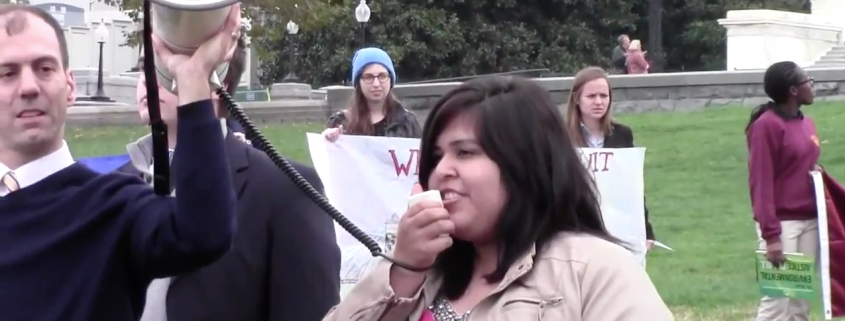
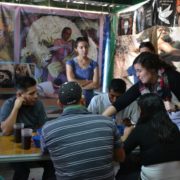
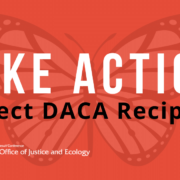
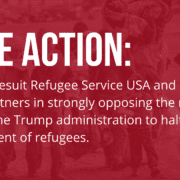

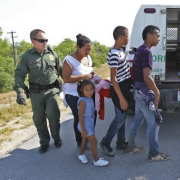
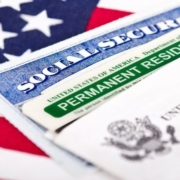


Leave a Reply
Want to join the discussion?Feel free to contribute!